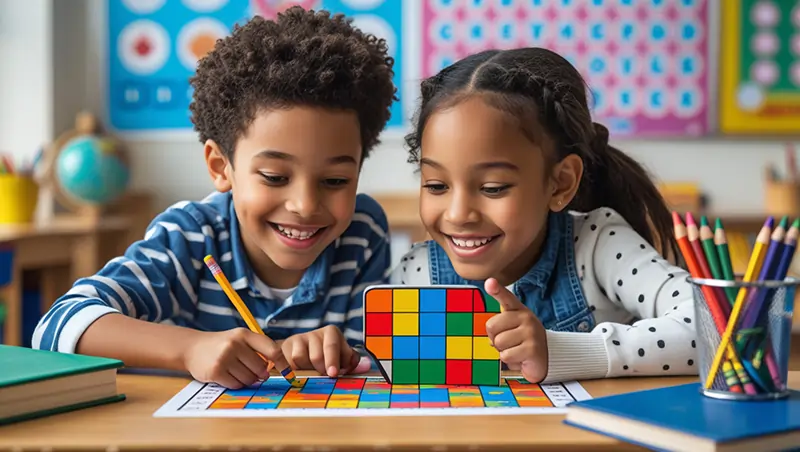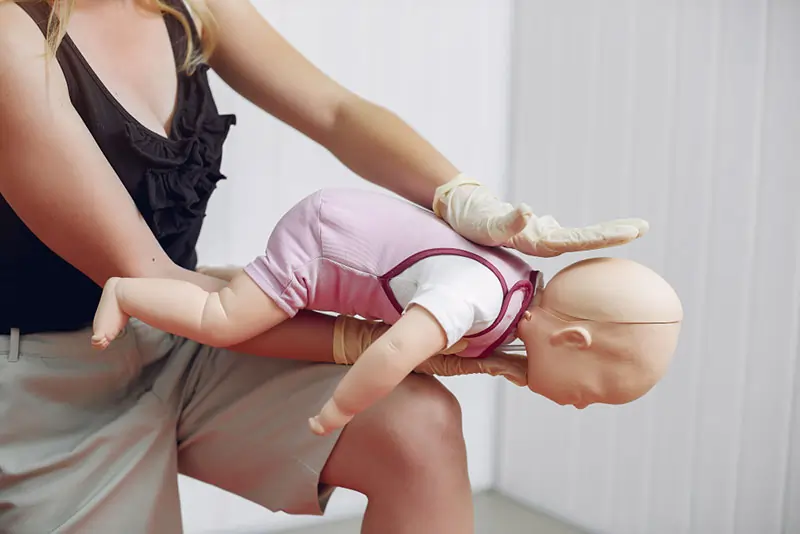Boost Vocabulary with Fun Crossword Puzzles for Kids
Crossword puzzles for kids are more than just fun; they also help kids learn new words, think critically, and get better at speaking and writing. You can learn and have fun at the same time with printable and interactive crossword puzzles. This is because screens take up so much time for learning. Let’s talk about how vocabulary games like crosswords can help kids learn while they have fun.
1. Why Crosswords Are Great for Learning
Crossword puzzles may seem like simple word games, but they can teach kids a lot, especially when they are young and still learning. This is why:
Growth of the mind
Crosswords make different parts of a child’s brain work. They help you remember things, spell better, and learn how words are connected.
Better spelling and grammar
To solve a crossword, you need to spell things correctly. It helps you remember the right spellings by repeating and practicing them.
Explore Free Grammar Lessons for Kids at
? KidsWorldFun’s Grammar Page
Being able to understand what you read
Kids have to read between the lines and get better at understanding to figure out the clues in crosswords.
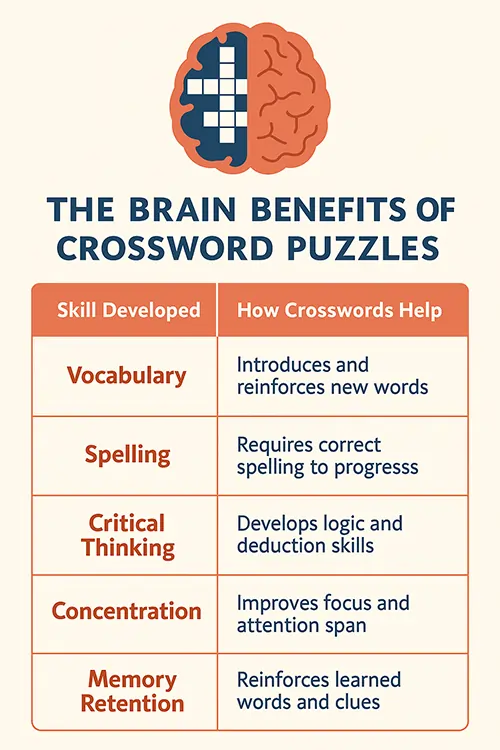
2. Vocabulary Enhancement Through Puzzles
Crossword puzzles and other vocabulary games are natural teachers. This is how they help you learn new words:
- Contextual Clues: Kids learn to figure out what new words mean by looking at the things around them.
- Word Repetition: Using the same words in different puzzles helps you remember them.
- Synonym and Antonym Practice: Clues often use synonyms or antonyms, which helps people learn more words.
For example, if the clue is “Opposite of cold” and the answer is “HOT,” kids learn new words by connecting opposites.
Explore Free English Lessons and Worksheets for Kids at
? KidsWorldFun’s Learn English Page
Sample Vocabulary Words by Age Group
| Age Group | Example Words in Crosswords |
| 5–7 Years | Cat, Dog, Run, Big, Toy, Fun |
| 8–10 Years | Forest, Planet, Ancient, Bright, Puzzle |
| 11–13 Years | Democracy, Photosynthesis, Equation, Terrain |
3. Printable Crossword Collections
Crossword puzzles for kids that can be printed are easy to use, don’t require a screen, and can be used again and again. You can use them at home, at school, or on the go.
Where to Find Printable Crosswords:
- Educational Websites (like KidsWorldFun)
- Teacher Resources Hubs
- Online Puzzle Generators
- Magazines and Workbooks
Printables are great because:
- No need for the internet or any devices to use them.
- Simple to store and look at again.
- Good for competitions and group activities.
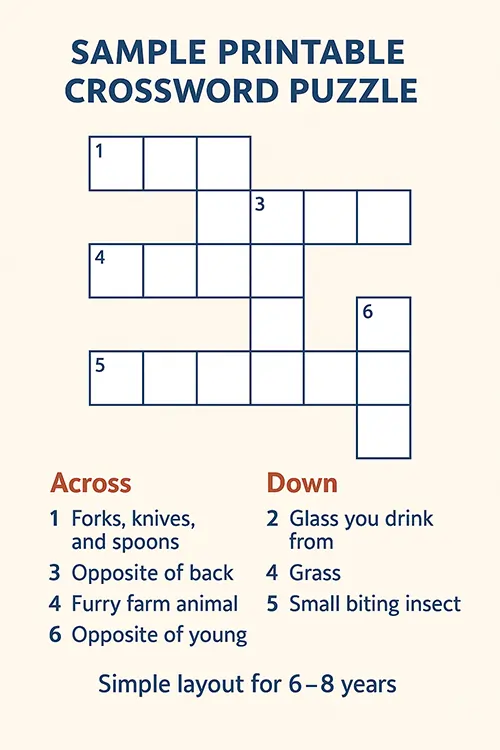
4. Age-Appropriate Puzzle Design
Choosing or making the right puzzle for a child’s age makes sure it’s hard but not too hard.
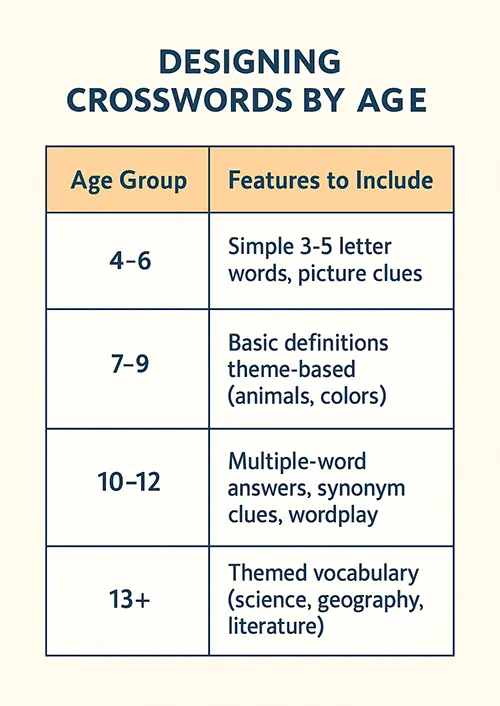
Tip: For younger kids, always use big fonts, lots of white space, and short, interesting clues.
5. Tips for Solving Crosswords
Here are some tips to help kids get the most out of vocabulary games like crossword puzzles:
Begin with the Simple Clues
Tell kids to answer the easy questions first. This helps you find the hard ones and gives you more confidence.
Use a Pencil (for Printables)
It’s normal to make mistakes! Kids can fix their answers as they go with pencils.
Search for Clues That Are Fill-in-the-Blank
These are usually the easiest and give hints about the words around them.
Urge People to Use a Dictionary
A child-friendly dictionary encourages kids to be curious and learn new words.
Make Goals for the Puzzle
Make the experience like a game. “Finish in 10 minutes” or “Find 5 new words” are two examples.
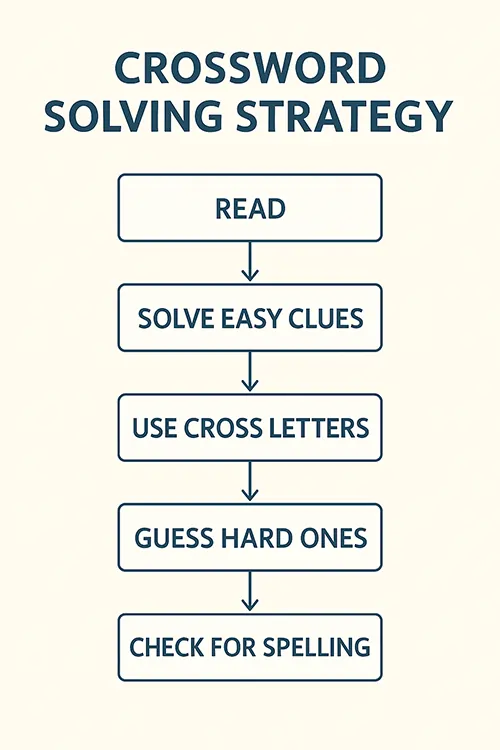
6. Making Your Own Crossword
Making your own crossword puzzle can be just as fun and helpful. Kids can use the new words they’ve learned to make puzzles for their friends or siblings.
You can use online generators like Puzzle-Maker, Discovery Education, and ABCYa.
The manual way is
- Choose a theme, such as “Fruits.”
- Choose 8 to 10 words.
- Make a grid on graph paper.
- Make the clues easy to understand
- Fill in the grid, but leave some spaces empty for others.
For example, a kid-made crossword puzzle with the theme “Fruits”
| Across Clue | Answer |
| 1. Yellow and monkeys love it | Banana |
| 3. Red and used in pies | Apple |
| Down Clue | Answer |
| 2. Green on outside, red inside | Watermelon |
7. FAQ – Crossword Puzzles for Kids
Q1: At what age can kids start solving crosswords?
A: As early as 4 or 5 years, with picture-based or word-matching puzzles. Start with simple 3-letter words.
Q2: How often should kids do crossword puzzles?
A: It’s best to do it two to three times a week to help your vocabulary and keep you from getting bored with screens.
Q3: How does a crossword puzzle different from other word games?
A: You have to spell and figure things out in crosswords. Word search and Scrabble are other games that are more about making or finding words.
Q4: Do crossword puzzles help you study for tests?
Yes. Puzzles based on subjects like science or geography are a fun way to reinforce what you learn in school.
Q5: Do crossword puzzles help you read better?
A: Yes, for sure. Figuring out clues and finding the right words helps you learn new words and understand what you read.
8. Conclusion
Crossword puzzles for kids are more than just things to do to pass the time. They are fun vocabulary games that get kids’ brains working, encourage creativity, and help them learn new words. These puzzles are great for kids, whether it’s a rainy afternoon or a school activity. They don’t require screens and are fun to do.
There is a crossword for every child and every level of skill, from printable collections to puzzles you can make yourself. So get a pencil, choose a theme, and watch your child’s vocabulary grow, word by word!
Quick Recap
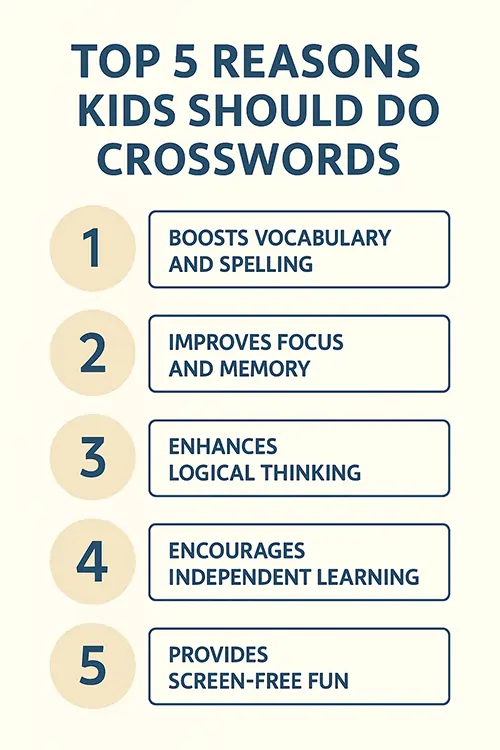
Explore Crossword Puzzle Games for Kids at
? KidsWorldFun’s Crossword Puzzle Games Page
Let the words begin!

